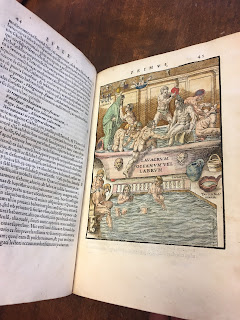This one goes out to all who appreciate the Beautiful Game and the value of lifelong friendship.
Old footballers never die they just play in reunion soccer games!
Thank you to all who coordinated, participated and watched the 1st Annual Oneida High School Alumni Soccer Classic.
More so, thank you to all soccer alumni and friends for the wonderful memories, both past and present.
We will be back in 2018!
Old footballers never die they just play in reunion soccer games!
Thank you to all who coordinated, participated and watched the 1st Annual Oneida High School Alumni Soccer Classic.
More so, thank you to all soccer alumni and friends for the wonderful memories, both past and present.
We will be back in 2018!
 |
| 1st Annual OHS Alumni Soccer Classic: Photo of Teams |
 |
| OHS 1988 Varsity Soccer Team-L to R: Jon Pawlika, Camilo Bearman, The Blogger, Brent Elford, Jeff Reese, Mark Lundrigan, Lars Ljungkvist |
 |
| Pre-game with Swedish Soccer Star: Lars Ljungkvist |
 |
| Pre-kick Off Huddle |
 |
| Regrouping at halftime |
 |
| Back in the OHS Goalmouth After 29 Years |
 |
| With Special Guest Nick Meskos: West Genesee Soccer Standout and 1988 Empire State Games Teammate |
 |
| Pre-event Greetings |
 |
| A Loyal Fan |
 |
| 1988 OHS Varsity Soccer Team |
















